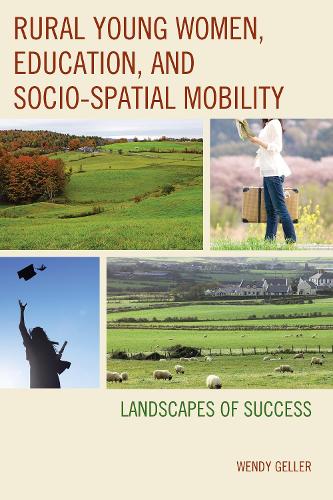
Rural Young Women, Education, and Socio-Spatial Mobility: Landscapes of Success
(Hardback)
Publishing Details
Rural Young Women, Education, and Socio-Spatial Mobility: Landscapes of Success
By (Author) Wendy Geller
Bloomsbury Publishing PLC
Lexington Books
8th October 2015
United States
Classifications
Professional and Scholarly
Non Fiction
Gender studies: women and girls
Social classes
307.72
Physical Properties
Hardback
300
Width 159mm, Height 235mm, Spine 27mm
594g
Description
Much of the literature on globalization has centered on the large, macro-level forces that influence the ways ideas, people, and various forms of capital move around the world. From this vantage point, discussions about the progressive feminization of migration, in particular the feminization of out-migration from rural areas, indicate an intriguing trend. Simultaneously, the local experience of global forces is an important way of exploring how macro-level processes are navigated by social actors on the ground. This provides added texture to our understanding of why and how people make decisions about their lives within an increasingly interconnected social, economic, and political environment. This volume explores whether concurrent patterns in identity development, social relations, and youth behaviors on the micro-level might help explain similarities observable at the macro-level. Through a triangulated approach that balances between statistical backdrops, extant quantitative research, and in-depth qualitative interviews, this book theorizes about shifts in gender normativity, efforts towards social mobility, and the possible effects of an increasingly globalized society. To do this, it examines the decision-making processes employed by high-achieving young women from rural areas in Vermont and Leinster, Ireland as they figured out who they wanted to become as adults and where they wanted to be those people. Remaining mindful of structural constraints and using the lens of the psychic landscape (Reay 2005) to view class as a reflexive practice, this book peers into the ways certain types of identity evident among blue-collar students seem to be carving out some potential for social and spatial mobility amidst both global and local trends.
Reviews
Geller contextualizes her research into high school girls attitudes and career plans within a sophisticated overarching framework that weaves globalization perspectives with debates about constructions of the self, social reproduction in stratified societies, and mobility (both social and geographic). . . . Gellers contention that schooling can enable agentive women to resist notions of marriage and motherhood as the only options for adult women may indeed reflect a challenge to the dominant patriarchy in both nations where she conducted research. * Association for Feminist Anthropology *
In Rural Young Women, Education, and Socio-Spatial Mobility, Wendy Geller undertakes an impressive synthesis of diverse literatures in order to make sense of the complexities of identity formation among rural young women as they confront the challenges of late-modern societies and their localglobal influences. The focus on how high-achieving secondary-school students derive meaning in their current lives, and how this relates to their perceptions of identity horizons, is particularly illuminating. This qualitative study is especially well-situated in the growing literature concerning how, locally and globally, young women are increasingly outperforming their male peers. -- James Ct, University of Western Ontario
In this book Wendy Geller adds a rich and dynamic qualitative dimension to the numerical data that have charted the out-migration of young women from rural areas. Drawing on case studies from rural Vermont and Ireland, she details the complex set of practices by which high-achieving female secondary students construct future biographies tied to leaving their country towns. In an analysis informed by both the importance of structure and agency in shaping the lives of rural youth she demonstrates the intimate and complex connections between the local and the global. -- Barbara Pini, Griffith University
Author Bio
Wendy Geller is director of analysis and data management at the Vermont Agency of Education and research fellow at the Center for Research on Vermont at the University of Vermont.
